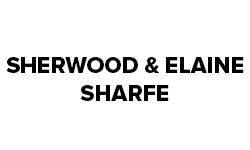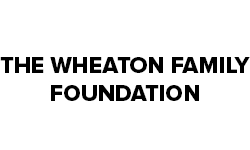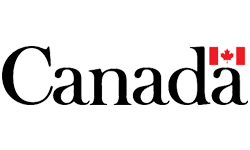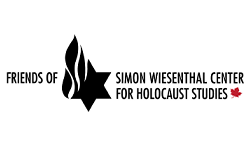Part C
Inquiry Resources
- Ken Leyton-Brown, University of Regina professor – Kenneth Leyton-Brown specializes in Canadian legal history, with a particular emphasis on the legal history of Saskatchewan. (Good website for information on Saskatchewan History) http://www.canadashistory.ca/Education/U-of-History/Universities/University-of-Regina/Kenneth-Leyton-Brown (link no longer active)
- Critical Thinking Consortium – tc2.ca
- How Globalized are our Lives? – Globalizing Connections tc2.ca/shop/download/CollectionCC/FreeSamples/GlobalizingConnections_Sample.pdf
- Critical Challenges: https://web.archive.org/web/20140509150729/https://tc2.ca/en/teaching-resources/online-resource-collections/critical-challenges/critical-challenges-collection.php
- Pivotal Voices: http://www.tc2.ca/en/teaching-resources/online-resource-collections/pivotal-voices.php
- NFB Interactive: allows you to do a search for relevant resources but snoop around as very good – https://www.nfb.ca/interactive/
- CBC Digital Archives – cbc.ca/archives
- Saskatoon Public, Secondary Library Guides – Native Studies Guideshttp://secondarylibguides.spsd.sk.ca/content.php?pid=303853&sid=2672173
- The Historical Thinking Website – www.historicalthinking.ca
- Educational Technology and Mobile Learning – http://www.educatorstechnology.com/2012/08/great-free-web-resources-on-language.html
Cross Curricular Connections
Themes
- Personal and Philosophical: Students will reflect upon:
- self-image and self-esteem; and,
- self and life, and on their beliefs and values and those of their society.
- Social, Cultural, and Historical: Students will
- look outward and examine their relationships with others, their community, and that of the world; and,
- consider the historical context.
- Environmental and Technological: Students will:
- explore the elements of the natural and constructed world and the role of technology and related developments in their society.
- Communicative: Students will:
- consider the role of communication in their lives and the ideas and technologies that help people become effective communicators.
Treaty Education
- TR9: Investigate the treaty experiences of Indigenous people around the world.
- SI9: Apply understanding of treaties and treaty making with world indigenous peoples.
- HC9: Analyze how treaty making recognizes peoples’ rights and responsibilities.
- TPP9: Examine the effectiveness of treaty making in addressing the circumstances of Indigenous peoples.
Health
Understanding, Skills, and Confidences (USC)
- USC9.2 Analyze how the well-being of self, family, community, and the environment is enhanced by a comprehensive, community approach to safety.
- USC9.3 Interpret, critique, and question the stigma associated with individuals, families, and communities living with/affected by non-curable infections/diseases, including HIV/AIDS and Hepatitis C and for those who advocate for them.
- USC9.4 Analyze the norms and expectations (e.g., community, cultural) associated with romantic relationships as a means to effectively plan for related health promotion.
- USC9.5 Evaluate a variety of healthy food policies and plan to participate in the development, revision, and/or implementation of a healthy food policy (e.g., fundraising, feasts, canteen sales, extra-curricular events) in the community (e.g., home, school, arena, youth center).
- USC9.6 Analyze the health, economic, and social supports and challenges of addictions (e.g., tobacco, shopping, alcohol, gambling, Internet, drugs) on self, family, community, and the environment.
- USC9.7 Analyze tragic death and suicide as distressing community issues and appraise what supports and health promotions exist in the community to address these issues.
- USC9.8 Assess the ways self, family, and community facilitate healthy living for people with chronic illness.
Decision Making
- DM9.11 Analyze the health opportunities and challenges and establish personal health promotion goal statements related to comprehensive approaches to safety, non-curable infections/diseases, romantic relationships, addictions, tragic death and suicide, chronic illness, and sexual health.
Further Investigation Suggestions
- Compare Canada’s Universal Health System and the Health System based on insurance in the United States of America. Discuss the importance of being able to take care of your own citizens in a country.
- Research the beginnings of Medicare in the province of Saskatchewan, 1962, under the leadership of Tommy Douglas. Reflect in your journal on the values of a society that would vote for universal health care.
- Examine other countries that have universal health care and discover the roots or impetus for that development in that particular country. What values are demonstrated in those countries?
- Prepare a radio or television show on the historical events that shaped our country during the years of territorial expansion and empire building. Highlight the personal lives and stories that come from your research.
GLOSSARY
“Text from Vocabulary.com, Copyright ©1998-2016 Thinkmap, Inc. All rights reserved.”
Acquisition – is something you acquire—a book, a skill or if you are a mogul, a company. It describes things you have purchased, things you have learned, or things you have got.
Colonization – is the act of setting up a colony away from one’s place of origin. Remember when the Pilgrims landed at Plymouth Rock? That was the beginning of a period of colonization.
Distribution – means the passing out of something.
Empire – an empire is a group of countries or territories that are under the control of a single entity but it can be used figuratively too.
Imperialism – imperialism is a type of government that seeks to increase its size, either by forcing (through war) or influencing (through politics) other countries to submit to their rule.
Society – refers to people living in social order. Unless you are a reclusive person, you are a part of society in some way or another.
Territory – a certain area that’s owned or under the control of someone is called a territory. Countries defend their territories during wars.
Worldview – a comprehensive view of the world and human life.
Appendix
Positive Peer Pressure can Make a Change
http://www.leaderpost.com/news/Positive+peer+pressure+make+change/10030235/story.html (link no longer active)
By Marc and Craig Kielburger, The Leader-Post July 15, 2014
Malala Yousafzai thinks the world is small – “a family,” she told us, “in one house.”
When she met with the parents of some of the 276 schoolgirls kidnapped by Boko Haram on her trip to Nigeria this past weekend, she called the girls her “sisters,” promising to speak out until their release.
Before her trip to Nigeria, she took her first trip to Africa with us two months ago. In Kenya’s Maasai Mara to help build a girls’ school, she was welcomed like a sibling, laughing and quietly conspiring with the local girls while she hauled cement at Oleleshwa, a Free The Children school.
Teaching a geography class, Malala held her composure at the chalk board until she erupted in giggles with the other students, a perfect enactment of her twin roles for them – mentor and peer. She is after all just 17, having celebrated her birthday and Malala Day – a UN-designated day of awareness for universal education – on July 12 while in Nigeria. The latest campaign from her Malala Fund is cultivating the hashtag #strongerthan, with supporters posting photos and messages to prove they are stronger than the enemies of education.
The world knows her as the girl who was shot by the Taliban. In her home country, Malala was wellknown as an activist by the time she was 11. From her bedroom in her home in Pakistan’s Swat Valley, she listened to the bombs outside and blogged anonymously for the BBC. The day the Taliban came for her, she was 15, shot in the head with a Colt .45 pistol.
The world, and especially its youth, rallied around her. We had a chance to speak to Malala about the advice she would give to children in the West who want to live her message for universal rights to education.
Remember the world is small Malala: This world is like a family, and in one house if you don’t think about your brother and your sister, you don’t have a bright future. That is my message to the whole world – that we should think about those children who are suffering from child labour, from terrorism, from child trafficking. We need to work together for education. I would request that the young generation especially speak out. When I was in Swat (Valley), I spoke only a few words but it had a great impact.
Be grateful for your education Malala: Before (the shooting), people knew that children are deprived of education. But some children were thinking that going to school is such a burden: ‘Oh, I have to do a lot of homework, and this experiment, and this research and I’m tired.’ In other parts of the world, there were so many children who wanted to go to school, who wanted to struggle for it and who said, ‘I want to learn, I want to sit in a classroom.’
I’m really happy that people are supporting me in this cause. They do not support me, but rather they support those children for whom we are speaking.
Recognize life lessons in the classroom Malala: I would give some small advice. Even though it would look hard to you: Why am I doing a lot of homework? Why do I go to school every day and wake up early in the morning? – that’s hard for me as well to wake up early in the morning. But going to school means building up the future. When you go to school, you build up your future; you build up the future of your country.
(School) can furnish and can polish your talent. It can polish your skills, so tomorrow you can get a better job, you can live a better life. If you are an artist, in school you will learn more about your art.
You also learn other basic things. You learn in a friendly environment about how we would live with each other. We sit on the same bench – it shows equality; it shows that all are equal.
Brothers Craig and Marc Kielburger founded a platform for social change that includes the international charity, Free The Children, the social enterprise, Me to We, and the youth empowerment movement, We Day.
© Copyright (c) The Regina Leader-Post
© 2023 Concentus Citizenship Education Foundation Inc. All Rights Reserved.









